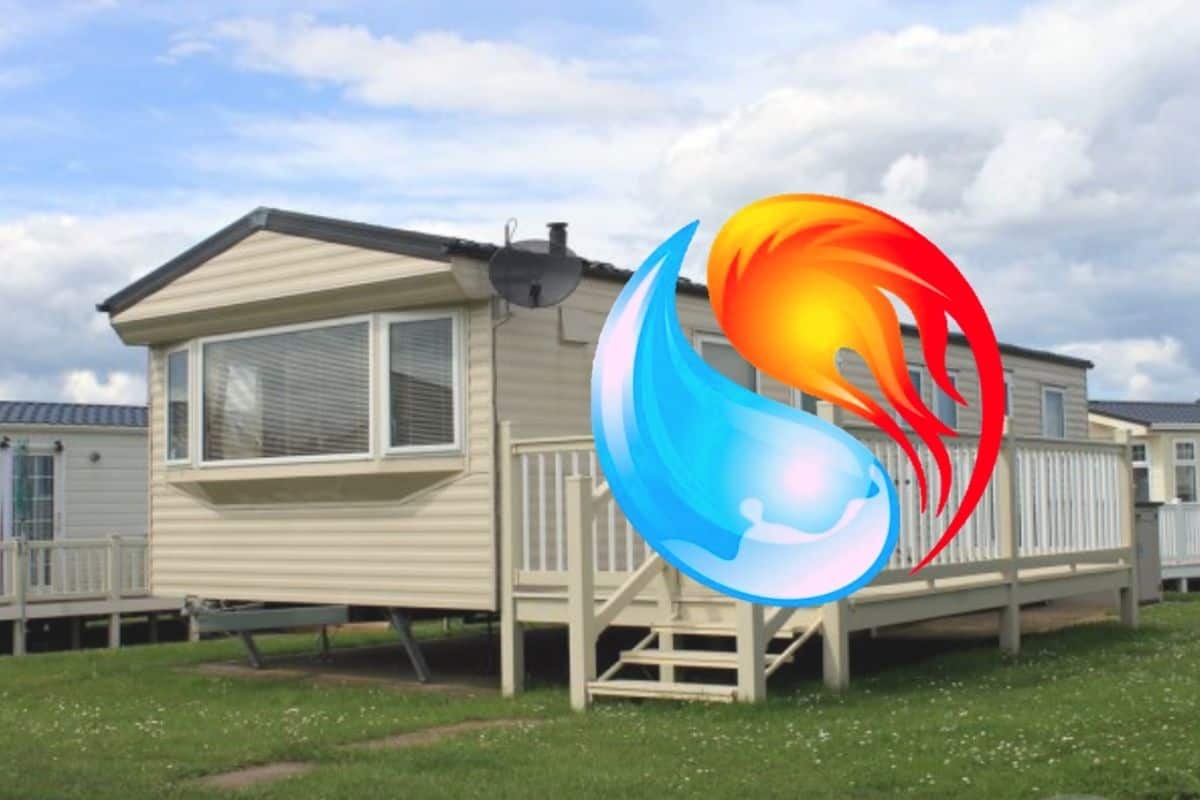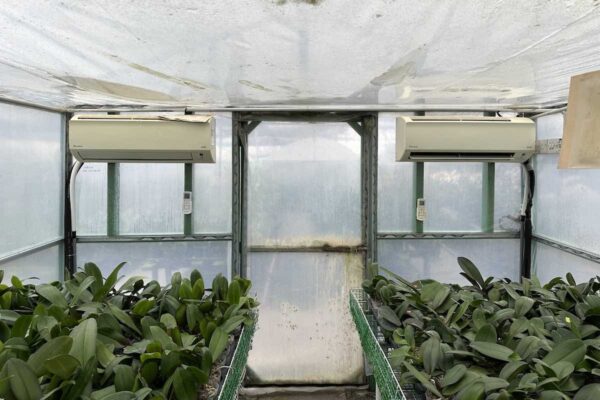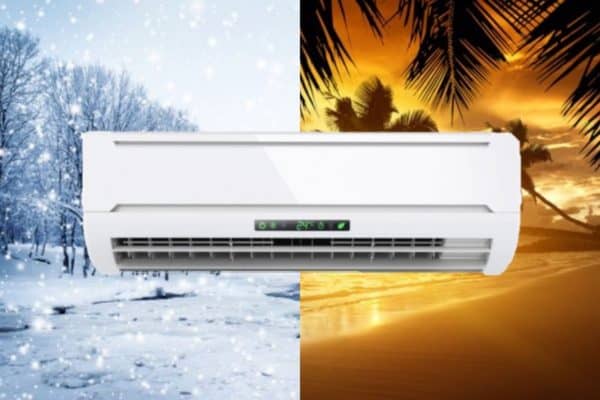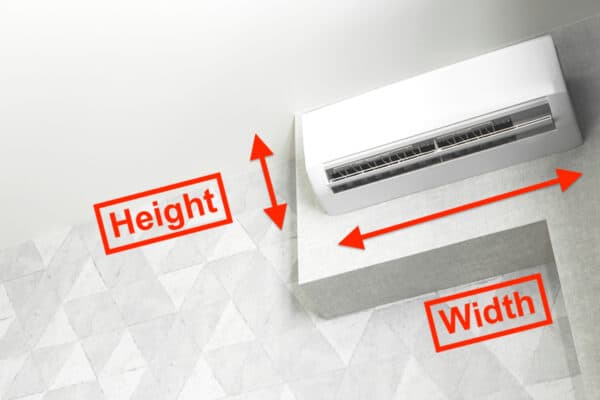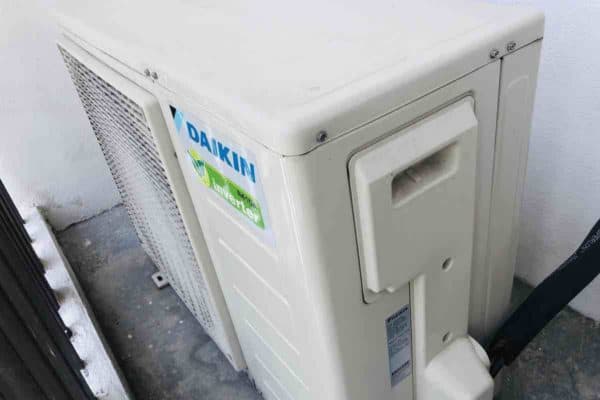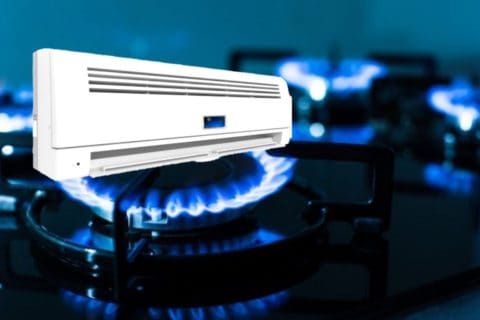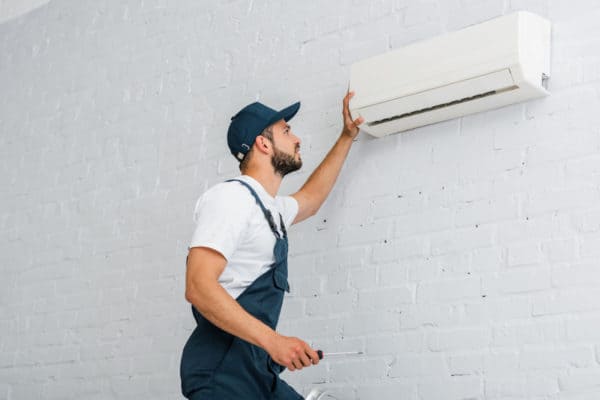Best HVAC System for Mobile Homes (Heating & Cooling)
Mobile homes are getting popular nowadays. But, many mobile homes are built with a central air conditioner that is not efficient. I thought there is a better way to heat and cool a mobile home. So, I spent a few hours doing research on the best HVAC system for mobile homes.
It turns out that the best HVAC system for mobile homes is the ductless mini split heat pump. It runs more quietly and efficiently than other HVAC systems. The best thing about the ductless mini split heat pump is that it does both heating and cooling extremely well.
Most people are familiar with traditional central air conditioners. However, I realized that only a handful of people know about mini splits, let alone putting one in a mobile home.
Why Mini Splits are the Best HVAC System for Mobile Homes?
The main reason why I think mobile home owners should use a mini split is that mini splits are so much more efficient and they run incredibly quiet.
A conventional furnace had to be made smaller in order to fit inside the small cabinet prepared by the mobile home manufacturer. Thus, their efficiency is compromised.
Furthermore, an expert said that manufacturers put a HVAC system in their mobile homes just to sell better. Hence, many mobile homes often have a poor HVAC system especially the ductwork. He was delighted to see that people are starting to use mini splits in their mobile home.
The truth is mini splits had grown so much better nowadays. Previously, mini splits were bad in heating. Now, with inverter technology, mini splits heating is as good as cooling.
These mini splits are precisely known as mini split heat pumps.
High Energy Efficiency
A new mobile home central air conditioner (air conditioning + furnace) usually has an energy rating of about 13-15 SEER depending on the brand and model. Meanwhile, most mini splits have an energy rating of around 20 SEER. That’s 50% more efficient.
When compared to the window and portable air conditioners, Energy Star reported that mini splits are 30% cheaper to run in terms of cooling cost. For the heating cost, mini splits are 60% cheaper to run than electric heating systems.
Shout out to Sam and Angela from Green Acre Homestead (check out their YouTube channel). The couple owned a 1988 Palm Harbor single-wide mobile home and they renovated their old furnace system into a multi zone mini split heat pump system. They got quoted $14k for new central air and $10k for a professional mini splits installation before they decided to DIY their mini splits which they did a great job.
While researching, I noticed that on average, mini splits can bring down the heating cost in a mobile home from $300-$450 per month to less than $75 per month. That’s 5-6 times saving every single month!
Quiet Operation
If you own a central air conditioner in your mobile home, you know that it is noisy. A central air conditioner in mobile homes is exposed, it’s not located in the attic like the one in single-family homes which can suppress the noise transmission.
Moreover, the central air in mobile homes has a big return air grille which also causing a lot of noise.
On the other hand, mini splits are extremely quiet. It’s barely audible at only 20-25 dB. I had one in my bedroom and honesty, I can barely hear any noise and it doesn’t disturb me at all when I need to focus on my work.

I believe no one will argue with me on mini splits quietness when compared to the window and portable air conditioners. Both of them are just plain noisy. Some window air conditioners can go as low as 42 dB but are still incomparable to mini splits.
Space Saving
Mini split indoor units are installed up high on the wall, unlike a furnace that takes up valuable space in a mobile home. As for the outdoor unit, the heavy central air condenser needs to sit on the floor.
If your place does flood, you’ll need to jack up the heavy condenser.
On the other hand, mini split condensers can be mounted on the floor as well as on the wall. They are not very heavy and are usually supported by an L-bracket that you can easily buy from stores.
However, it is recommended that you mount them on the support structure of the mobile home. A small mini split condenser weighs about 60-65 lbs.
We all know that window air conditioners occupy a portion of the window. Mini splits obviously don’t and so, they are a much better heating and cooling system.
What is a Mini Split?
I’ll talk a little a bit about the mini split here. Basically, a mini split consists of one indoor unit and one outdoor unit. The two units are connected by refrigerant pipes and cables.
A drain is needed to allow the condensate water to discharge from the indoor unit to outside the house via gravity.
Mini splits are very common in Malaysia (where I live) and many countries like Singapore, Thailand, Korea, Japan and other countries in Asia.
In fact, the mini split system is the most used air conditioning system in the world at 77% (as of 2016) compared to the rest of air conditioning systems such as window, portable and central air conditioners.
Mini splits are known for their reliability, simplicity, quietness and efficiency. However, their biggest disadvantages are high installation costs and not being aesthetically pleasing to some people due to the need to have many units.
A standard 9,000 BTU mini split heat pump cost around $800-$1000 to purchase and the installation cost is depending on your location and how & where you wish to place it. Generally, the installation cost is about $300-$1500 per unit.
If you are interested to know more about mini splits, I have a series of posts all about mini splits including topics such as dehumidification, filters and many more. I encourage you to check them out, you’ll understand better and get comfortable with mini splits.
Do Mini Splits Work in Cold Weather?
This is an important question to ask and I’ve written a post to answer this question in detail including the mini splits that I recommended for extreme cold. But I’ll give a short one here.
Mini splits do work in cold weather. Most mini splits are able to maintain operation at an ambient temperature as low as 5°F (-15°C). However, they gradually lose their heating capacity when the ambient temperature drops below 47°F (8°C).
Most mini splits stop working at a temperature below 5°F (-15°C) and above 115°F (46°C). Mini splits have a safety device that may act to stop the operation of either the indoor and outdoor unit or just the outdoor unit to protect the system from damage.
Mini splits that are sold to cold weather regions are designed to withstand the harsh environment. But, if you are unsure, you can always confirm with the manufacturer.
Mobile Home HVAC Myths
I came across many misconceptions or myths about mini splits in mobile homes while I was doing my research. Many people even HVAC contractors (I’m sorry) don’t have a deep understanding of mini splits and their applications.
Myth #1: Central Air Conditioner is More Efficient than Mini Splits
Generally, the larger the HVAC system, the better the efficiency. Large central air conditioners are more efficient than many small mini split units. Chillers in commercial buildings are 50% more efficient than other air-cooled systems such as mini splits.
However, a mobile home doesn’t need a large central air conditioner. As mentioned earlier, a mobile home central air conditioner is about 13-15 SEER only. Multiple mini splits with 20 SEER easily beat a central air conditioner.
Myth #2: Central Air Conditioner is Cheaper than Mini Splits
If you have existing ductwork, a central air conditioner can be cheaper than multiple mini splits in terms of purchase and installation cost.
However, if your mobile home ductwork needs to be replaced, fixed or upgraded, buying mini splits is a more cost-effective solution.
Furthermore, if your mobile home doesn’t come with the ductwork, it’s a no-brainer to go for mini splits because the ductwork itself often costs more than a central air conditioner.
Myth #3: Mini Splits are Not Suitable for Large Mobile Homes
Some people suggest that mini splits are only good for small spaces, double-wide mobile homes are not suitable. However, it is not true.
Mini splits nowadays have multi zone system. One outdoor unit can be coupled with 3-5 indoor units. A single multi zone unit has a capacity of around 4 tons or 50,000 BTU which is more than sufficient for single-wide and double-wide mobile homes.
For double-wide mobile homes, I would suggest using the multi zone system because having 5-7 outdoor units outside your house is not good looking and they occupy a lot of space. On the flip side, you only have two outdoor units if you’re using the multi zone system.
Final Thought
Back in old days, a central air conditioning system may be the only choice for most people especially mobile homes owner when the window and portable air conditioners are just too loud and inefficient.
Nowadays, mini splits have the best efficiency, they operate quietly and they are the most reliable air conditioning system. Hence, they are the best HVAC system you can get for a mobile home.
Even though your mobile home already has existing ductwork for a central air conditioning system, you still can go for mini splits. There is a high chance that the existing ductwork is not in a good condition anymore and there are air leakages everywhere.
I’m not a mini split manufacturer and I gain nothing by pushing mini splits. It’s just that I’ve seen too many centralized air conditioning systems leaking like crazy and it’s just too difficult for people to notice and fix it.
Besides, I’ve worked with thousands of mini splits in the past and I know they are reliable.
Next, you may want to continue reading my post on mobile home mini split purchase and placement guide where I walk you through step by step from calculating the capacity needed to designing the mini split location so that you can get the most out of the mini split air conditioner.
Lastly, consider my Mini Split (eBook) if you want to know how can you use Mini Split in your house. If you still have doubt or not feeling confident enough, feel free to consult me.
Consultation Service
Ask me for HVAC advice such as brand selection, best model, benefits, features, placement, duct size, grille size, how to design, design check, verification and other HVAC related queries.
If you have anything to add (or ask) about this topic, leave a comment down below!


